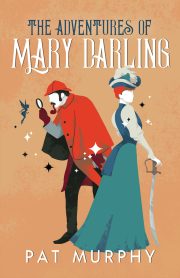How sociolinguistics can help you!
I’ve talked about sociolinguistics here before, in the context of accents. It’s essentially about how language differs across social boundaries, and how it is used to indicate membership in various kinds of social groups. These can be class groups, interest-related groups, regional groups, etc.
This is extremely useful for writing about science fiction and fantasy worlds.
As you put your world together, ask yourself how your people divide themselves up. Is it by town? By side of town (other side of the tracks, etc.)? Is it by larger geographical region? Is it by profession? By upper and lower class?
Once you’ve decided on the divisions, think through how these divisions might be linguistically indicated. Is there a pattern of speech that is considered particularly sophisticated? One that is very lowbrow? Is there a group, such as traders or port workers, whose language mixes with other languages from the nearby regions? How would that influence their speech, and how would such speech be regarded by those around them?
I’m not talking about slang, necessarily, though slang can be one of your tools. Pidgin/creole languages can also help you. You can also choose phonological differences, like the dropping of a final consonant on some kinds of words, to indicate the speech of a social group. Keep in mind that the social divisions you create can be distinguished by virtually any of the various measures I’ve been discussing: phonology, morphology, syntax, vocabulary use, pragmatics (!) etc.
Drawing linguistic distinctions between social groups is one of the best ways to help a created society take on extra dimension. So do give this some thought as you go forward.
—
How sociolinguistics can help you! is reprinted by permission of the author.
 Juliette Wade is an author of science fiction and fantasy who loves language and its cultural consequences. Her fiction appears in Analog and other short fiction magazines. She has degrees in Linguistics, Anthropology and Japanese.
Juliette Wade is an author of science fiction and fantasy who loves language and its cultural consequences. Her fiction appears in Analog and other short fiction magazines. She has degrees in Linguistics, Anthropology and Japanese.


